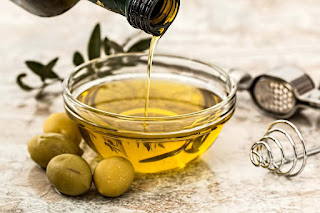The Wonder of Olives: History, Benefits, and Types of Olive Oil for a Healthy Lifestyle
Olive oil has been a staple in Mediterranean cuisine for centuries and is becoming increasingly popular in other parts of the world as people become more health-conscious. Olive oil is known for its numerous health benefits, including reducing the risk of heart disease, stroke, and cancer. In this article, we will explore the history and benefits of olive oil, the different types of olive oil, and how to use and store it.
History of Olive Oil
Olive oil has a long and fascinating history. The earliest evidence of olive oil production dates back to 6000 BCE in what is now modern-day Syria. The ancient Greeks and Romans revered olive oil for its health benefits and believed it to be a sacred food. The Greeks even used it as an award for Olympic athletes. The popularity of olive oil spread throughout the Mediterranean and eventually to other parts of the world.
Benefits of Olive Oil
Olive oil is rich in monounsaturated fats, which are considered to be healthy fats. These fats can lower LDL cholesterol levels (the "bad" cholesterol) and reduce the risk of heart disease and stroke. Olive oil is also high in antioxidants, which can help prevent chronic diseases such as cancer and Alzheimer's. Additionally, olive oil has anti-inflammatory properties that can help with conditions such as arthritis.
Types of Olive Oil
There are several different types of olive oil, each with its own unique flavor and characteristics. The most common types are:
1. Extra Virgin Olive Oil: This is the highest quality olive oil and is made from pure, cold-pressed olives. It has a strong flavor and aroma and is perfect for dipping, dressings, and marinades.
2. Virgin Olive Oil: This oil is also made from cold-pressed olives but has a slightly lower quality than extra virgin olive oil. It is a great all-purpose oil and can be used for cooking and baking.
3. Olive Oil: This is a blend of extra virgin and refined olive oils. It has a mild flavor and can be used for frying and sautéing.
4. Light Olive Oil: This oil is a heavily refined version of olive oil and has a very mild flavor. It can be used for high-heat cooking and baking.
How to Use and Store Olive Oil
Olive oil is a versatile ingredient that can be used in many different ways. It is perfect for drizzling over salads or vegetables, dipping bread, and using in marinades and dressings. When cooking with olive oil, it is important to keep in mind its smoke point, which is the temperature at which it starts to smoke and break down. Extra virgin olive oil has a lower smoke point than other types of olive oil, so it is best used for low-heat cooking or as a finishing oil.
To get the most out of your olive oil, it is important to store it properly. Olive oil should be kept in a cool, dark place, away from heat and light. A pantry or cupboard is a good place to store olive oil, as long as it is not near the stove or oven. Olive oil should also be kept in an airtight container to prevent oxidation, which can cause the oil to spoil.
In conclusion, olive oil is a healthy and delicious ingredient that has been used for thousands of years. Its numerous health benefits, unique flavor, and versatility make it a must-have in any kitchen. By understanding the different types of olive oil and how to use and store it properly, you can enjoy all of the benefits of this amazing food.
